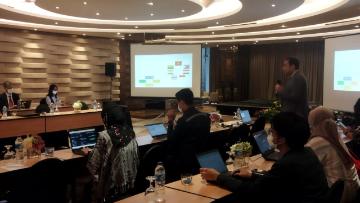Indonesia has committed to become a net-zero economy by 2060 including specific actions to be implemented for decarbonising its industry sector, namely fuel switching, energy efficiency, electrification, hydrogen, biomass, and carbon capture and storage. Indonesia is Southeast Asia’s energy and industry hub with a large production of steel, cement, and fertilisers, and it will require all different measures to put its industry sector on a path aligned with net-zero emissions.
The OECD’s new “Framework for industry’s net-zero transition” is a step-by-step approach to assist emerging and developing economies in designing solutions for financing and to improve the enabling conditions that can accelerate industry’s transition. The Framework implementation in Indonesia will contribute to the broader climate and finance policies and it can help to facilitate international co-operation for transition at scale. The implementation shall build on and align with existing initiatives driven by the Government of Indonesia, such as:
- The National Medium-Term Development Plan (RPJMN) 2020-2024, which includes national priority projects, notably in the field of industry and decarbonisation of the energy and industry sectors.
- The enhanced Nationally Determined Contribution, released in 2022.
- The Net Zero Emission 2060 analysis prepared by the Ministry of Energy and Mineral Resources, which outlines emission pathways, notably for the energy sector.
The Stakeholder Meeting convened national stakeholders to introduce the Framework to them, discuss its benefits for their varying needs and priorities, and agree on the roles and responsibilities during the Framework implementation in view of the potential industry sub-sector and technologies that will be covered.
